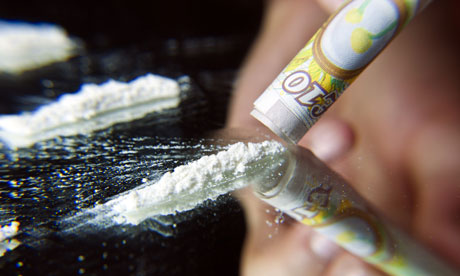
Is the amount of drugs or alcohol you consume dangerous? How much are your peers taking? Should you be cutting down? Are you more at risk than anyone else when it comes to drinking or using drugs?
A new digital application – called drugs meter – attempts to provide people who use drugs with quick, clear and practical answers to these questions.
Drugs meter is a free online and phone-based app that asks users to enter information about their drug habits such as how much and how often they use them. It then provides them with immediate, non-judgmental feedback that allows them to compare their drug use against thousands of others like them.
"Drugs meter takes into account who you are and what you do, but it does not tell you what to do. It works on the premise that most people know what's best for them, and shares what people tell us with our database of tens of thousands of others who use drugs to show them how they compare," says its creator Dr Adam Winstock, a consultant addictions psychiatrist in London and founder of Global Drugs Survey (GDS), which created the app.
Winstock argues that conventional drug information sources often fail because they can't give drug users the personalised information they need about their own consumption, and struggle to engage people who like taking drugs and simply want clear guidance on how to avoid harm, rather than being told simply not to do drugs.
"Everyone is different and react to drugs in different ways. Drugs meter gives feedback that reflects not just how much of a drug someone uses but how they use it and their own personal risk factors. For example, if he or she has a history of depression, making it a more accurate and useful reflection."
Drugs meter doesn't ask for personal details, nor does it store trackable data, says Winstock, but securely compiles the anonymous data it receives to build up an ever-growing source of comparative information about drug use. This enables it over time to issue more sophisticated assessments to app users, over time.
The drugs meter is also attracting attention from drugs and alcohol professionals who see it as a potentially useful resource in helping them designing services. Tom Woodcock, strategic director at Lancashire Drug and Alcohol Action team, said: "As well as providing invaluable data that will inform our needs assessments, the in-built harm reduction advice is a fantastic way of providing information that really connects with people who are taking drugs."
GDS is a self-funded, London-based drug data exchange that designed and conducted the 2012 Guardian survey of more than 15,000 drug user's experiences wordwide, published this week.
Nine drugs meters are currently available for alcohol, tobacco, cannabis, cocaine, MDMA, amphetamine, GHB, ketamine and mephedrone, with more in development.
Winstock added: "Lets face it, the person we are most interested in is ourselves and drugs meter is all about you. So if you like drinking and taking drugs or know people who do, you could do worse than spend 10 minutes of your time doing the drugs meter. How do you measure up?"

